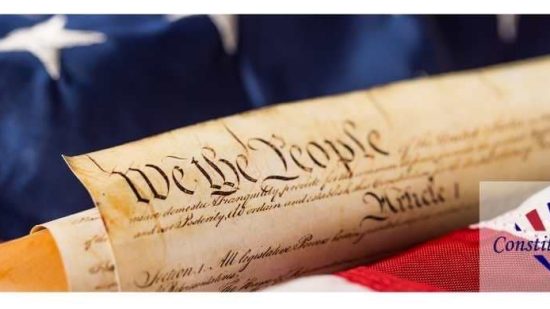What Is the Eighteenth Amendment?
The Eighteenth Amendment to the United States Constitution banned the processing, moving, and selling of intoxicating alcohol and was ratified on January 16, 1919.
However, it did not prohibit people from consuming, producing for personal consumption, or being in private possession of intoxicating liquors.

Section 1 of the 18th Amendment prohibited the “manufacture, sale, or transportation of intoxicating liquors.”
Section 2 states that the United States Congress has the power to enforce the article through pertinent legislation.
Section 3 declared that the article would only be operative after it was ratified as a constitutional amendment.
Congress subsequently passed the Volstead Act to carry out the intent of the Eighteenth Amendment.
The Years Preceding Prohibition
Between 1913 and 1919, the nation’s laws primarily focused on establishing an income tax, Senators being elected by the people, and prohibition.

The government relied heavily on tax revenue from the sale of alcohol. Therefore enactment of the 16th Amendment (the income tax amendment) helped eliminate the main obstacle to prohibition.
The Sixteenth Amendment made prohibition financially feasible. It was advantageous to the temperance movement as the loss of revenue argument against prohibition was now moot.
The Volstead Act
On October 28th, 1919, Congress passed the Volstead Act, also known as The National Prohibition Act, which introduced numerous limitations concerning the manufacture, sale, and transportation of alcohol.

It stated which alcoholic beverages were restricted and which ones were not. Alcoholic drinks that were used for purposes such as religion or in medicine were exempt.
President Woodrow Wilson refused to sign the bill. Still, the House of Representatives and Senate overrode his veto, and the Volstead Act was enacted.
January 17th, 1920, was the date the Volstead Act would go into effect all over the country. It was the earliest date allowed for prohibition by the Eighteenth Amendment.

Get Smarter on US News, History, and the Constitution
Join the thousands of fellow patriots who rely on our 5-minute newsletter to stay informed on the key events and trends that shaped our nation's past and continue to shape its present.

The Repeal of the Eighteenth Amendment
After the Eighteenth Amendment was ratified and enacted in 1920, it remained in effect for 13 years. However, in 1933 the Eighteenth Amendment was repealed after the ratification of the 21st Amendment.

This was despite the fact that there were powerful political coalitions that had initially advocated for prohibition.
Protestants, progressives, and many women, such as those in the Women’s Christian Temperance Union, had been vocal for a number of years on the negative impact alcohol was having on American society and public health.

What the temperance movement did not foresee, however, was how prohibition would lead to a direct rise in organized crime, exemplified by the infamous gangster Al Capone.
Enforcement of the Volstead Act became a near-impossible task, and a large and ultimately successful political movement grew calling for the repeal of the 18th Amendment.

The 21st Amendment ended national prohibition when it became effective on December 5th, 1933.




